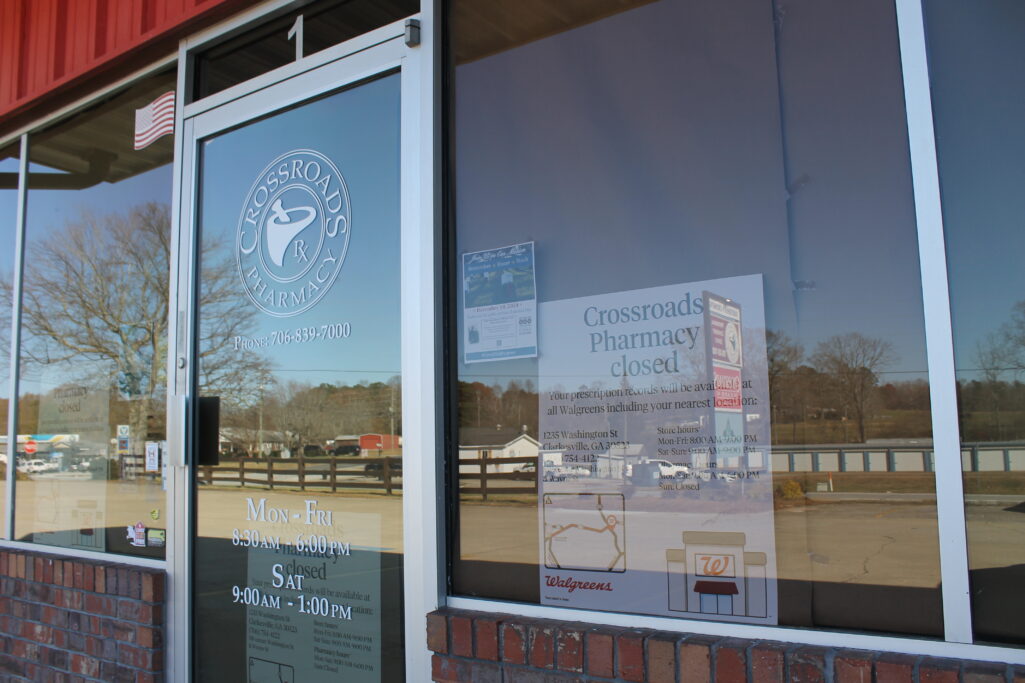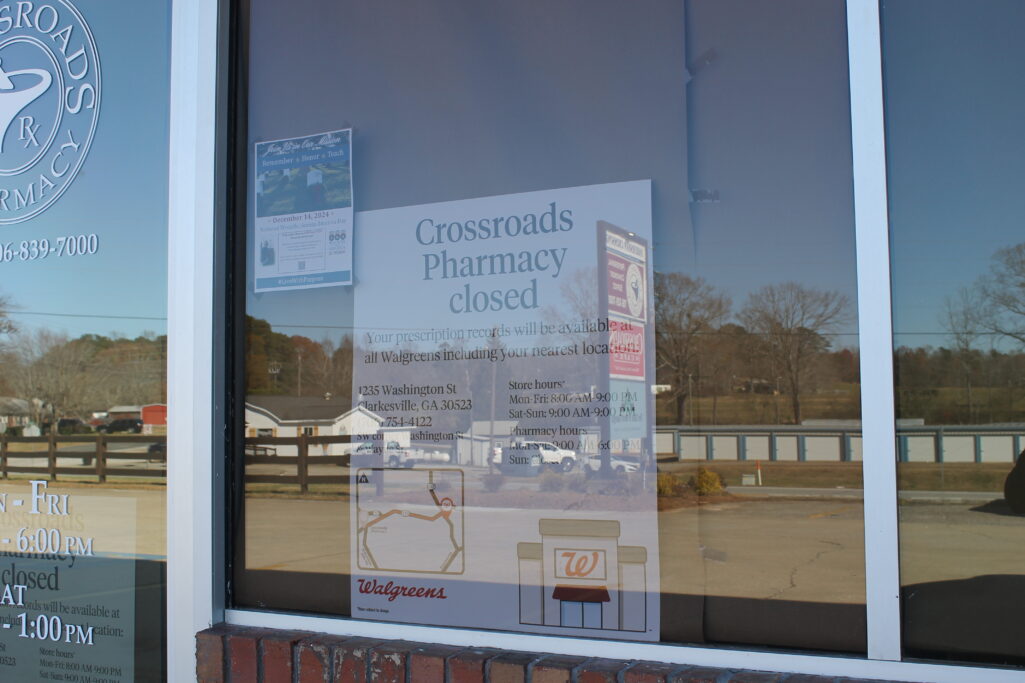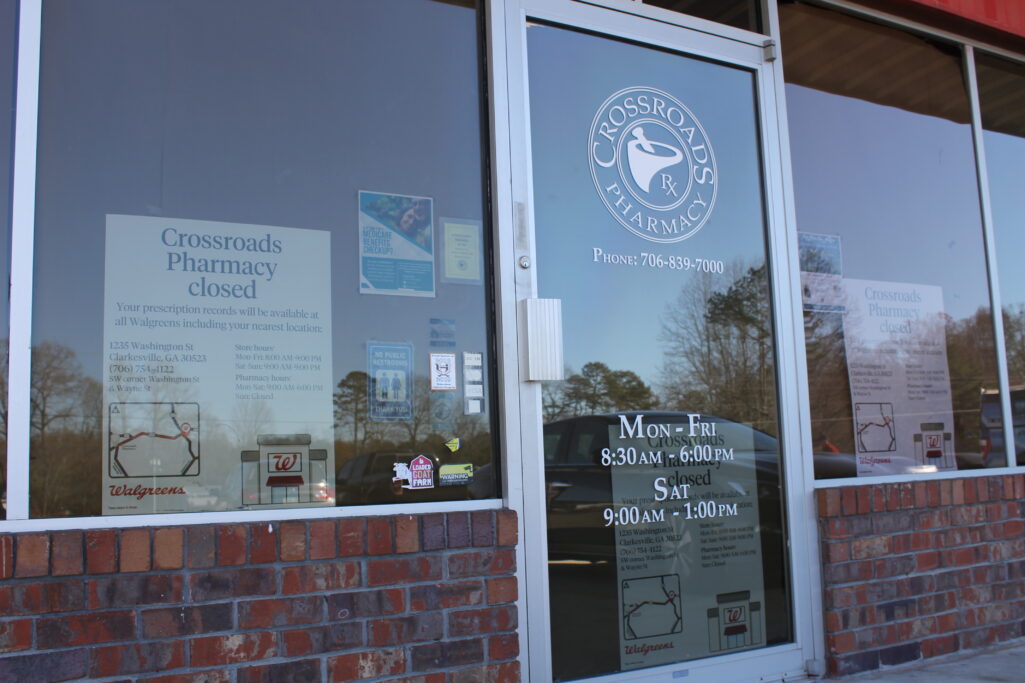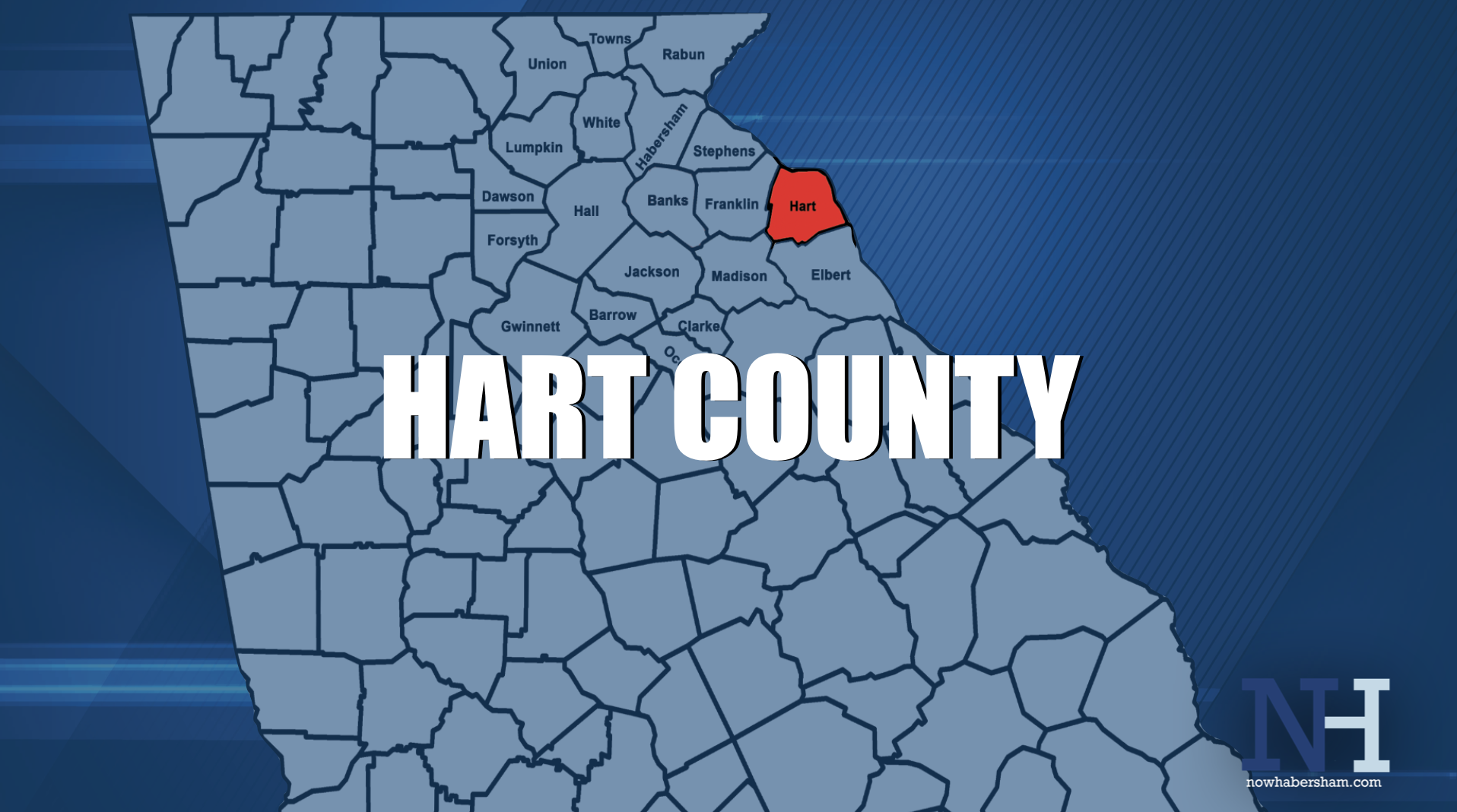
Crossroads Pharmacy, one of the few independent pharmacies left in Habersham County, has closed after more than seven years of business.
On Thursday, Dec. 12, a sign on the front window of the store – located at 4654 GA-115 – read: “Crossroads Pharmacy closed. Your prescription records will be available at all Walgreens, including your nearest location.”

A call to Crossroads, which opened in 2017, now redirects callers to the Walgreens pharmacy on Washington Street in Clarkesville. Crossroads Pharmacy owner Curt Van Orman could not be reached by phone.
Two pharmacies based in Habersham County have closed within the past five years: Clarkesville Drug in 2019, and Arnold Drug Company in Cornelia closed permanently just last year. Before it’s closure, Arnold Drug had been in business there in Cornelia since the 1940s.
For years, nationwide, the profitability of small local pharmacies like Crossroads has suffered at the hands of PBMs – also known as pharmacy benefit managers.
Kim Kaminski, owner of Tim’s Pharmacy in Cornelia, said she continues to feel the impact of PBMs on her business.
“That’s another local pharmacy gone,” she said. “I know that had to be a difficult decision for Curt and his wife to decide to go that route. The landscape of pharmacy has changed so much over the last few years. It’s just very difficult to be profitable in today’s times. It’s the American dream, and it’s just really sad to see that go.”
PBMs
PBMs act as middlemen between insurance companies and corporate pharmacy chains like CVS and Walgreens. Through negotiations with insurance providers, these third party management groups will deliberate much higher prescription reimbursements to large retail drugstore chains at a disproportionate rate than small, independent pharmacies receive.
PBMs also will design non-negotiable contracts that compromise profit margins of independent drugstores – while pharmacies like CVS see agreements with higher rates of reimbursement.
In these non-negotiable contracts, PBMs use terms like “compliance, quality assurance/adherence” and other arbitrary metrics to determine reimbursement rates between independent and corporate pharmacies – which tend to favor the larger corporate chains.
CVS Health spokesperson Phil Blando, in defense of PBMs, has said the independent pharmacy industry’s own data shows that independent pharmacies have grown in Georgia, citing 18 new independent pharmacies opening since 2021.
According to nonprofit patient advocacy group Consumers for Quality Care, the number of independent pharmacies in rural America has fallen by 16% in the last 20 years, and 12% of local drugstores in Kansas closed from 2010-2019.

Figures from the Georgia Pharmacy Association, quantified through a sample of pricing sources for Walgreens, Kroger and CVS in Jasper, GA, indicate average payments from insurance companies to three retail chains was 21.9% higher than local pharmacies for 26 “commonly prescribed” generics.
And, according to GPA, reimbursement payments to the three companies was up to 2,367% higher for cholesterol-lowering drug Lipitor and 512% higher for Lexapro, prescribed to treat anxiety and depression.
Independent pharmacies left
In Habersham, with Crossroads gone, there are about four local pharmacies still in business: Tim’s Pharmacy, Baldwin Pharmacy, Habersham Drug and Express Med.
House Bill 916, which passed Georgia’s legislature and was signed by Gov. Brian Kemp earlier this year, was intended to bring relief to independent drug stores.
HB 916 “provides one-time funding for a $3.00 per prescription dispensing fee for independent pharmacists and provides funds to increase the dispensing fee to $11.50 for independent low-volume pharmacies filling Medicaid prescriptions.”
After the closure of Crossroads, Kaminski said she doesn’t believe the bill will go far enough.
“More needs to be done at the state and the national level,” Kaminski said. “We definitely have some issues that need to be addressed with insurance reimbursements. This has been a tough year for pharmacies…it’s astounding how many small pharmacies nationwide have closed. Now, we have another statistic here in Habersham, and that’s just really sad.”







